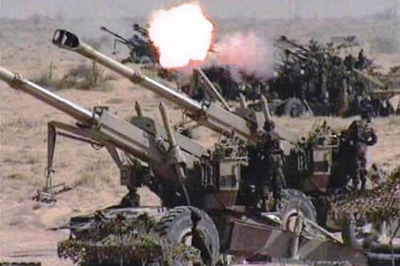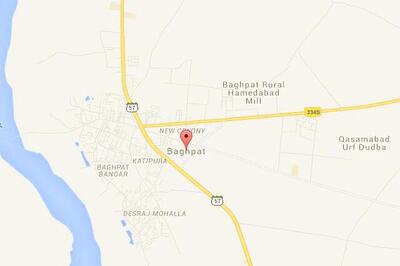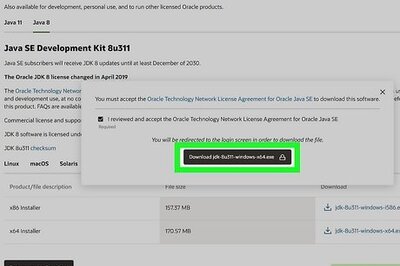
views
New Delhi: On 8 January 2018, the Congress party appointed transgender activist Apsara Reddy as national general secretary of its women's wing, the Mahila Congress, making her the 134-year-old party's first transgender office bearer. The move, seen as a stepping stone in giving representation to the third gender in Indian politics, was long overdue.
Reddy’s appointment, however, indicated that politics in the largest democracy has finally started to go beyond the archaic binary gender model of males and females. While her appointment is still a very small step in achieving the third gender representation in Indian politics, Reddy’s inclusion in India’s grand old party is an important milestone after the introduction of the ‘Other’ category in the gender column for the voter registration.
The first time transgenders and eunuchs were allowed to get registered as third gender from the usual male and female categories was during the 2014 Lok Sabha polls. The Election Commission classified them as ‘others’. In the same year, 25,527 individuals got registered as ‘Other’ voters.
Fast forward five years and there has been an increase of about 45% of the ‘Other’ voters from 25,527 in 2014 to 41,292 in 2019.
In 2014, the other gender constituted 0.003% of the total voters excluding the service persons, who do not yet recruit persons from the Other gender. This ratio rose to 0.005% in 2019.
In states like Kerala, Manipur, Mizoram, Sikkim, Tripura, Andaman & Nicobar Islands, Chandigarh and Daman & Diu, the reported Other gender voters have exponentially increased since 2014. Earlier, during the last Lok Sabha polls, the number of other gender voters in these states was zero.
Uttar Pradesh (8426) leads among the states with highest number of voters registered as ‘Others’, followed by Karnataka (6132), Tamil Nadu (5472) and Andhra Pradesh (3761). The least number of other gender voters, apart from those with none, are from Daman & Diu (1), Sikkim (2) and Mizoram (6).
It is important to mention that Arunachal Pradesh, Goa, Haryana, Meghalaya, Nagaland, Dadra & Nagar Haveli and Lakshwadeep, still do not have any voter registered in the ‘Other’ category.
Interestingly, of the 13,039 NRI electors in the 2014 elections, there was only one person registered as ‘Other’. The voter was from Tamil Nadu. This number has risen to 20 of the total 71,735 overseas voters in 2019. The most are from Kerala (8), followed by Karnataka (7).
There are 0.03% voters in the ‘Other’ category among the persons with disabilities.
Kiran, a transgender activist, however, believes that the actual number of transgenders are lot more than the voters who have registered as ‘Others’.
Talking to News18, Kiran, said, “As per the law, only those who can afford the sex-change surgery and present a medical certificate are considered transgenders and are allowed to register as the third gender, and not the ones who identify as one.
“The Supreme Court judgment on Article 377 has encouraged a lot of individuals to accept and claim their identity in public, yet a lot needs to change. We can start with changing the definition of the accepted transexuals.”
Many of the transexuals even after the surgery do not register themselves as ‘Others’, but identify themselves with respect to the sex acquired post-surgery.
Earlier, India had its moment in 1998 when Shabnam Mausi, a eunuch, was elected as an MLA in Madhya Pradesh. After her, Kamla Jaan in 2000 was elected from Raigarh (Chhattisgarh) to become the first eunuch mayor. Again in 2015, Madhu Kinnar won the Mayor election in Raigarh as an independent candidate. However, no state has yet sent any transgender to the Lok Sabha.
In 2014, there were nine nominations filed from the ‘Other’ gender—four from Uttar Pradesh, two from Tamil Nadu and one each from Himachal Pradesh, Maharashtra and Karnataka. Out of these, one nomination each was rejected in Himachal Pradesh, Tamil Nadu and Uttar Pradesh, and one each was withdrawn from Uttar Pradesh and Tamil Nadu.
Of the four remaining candidates, no one won the election and their deposits were forfeited. Of the total nine nominations that were filed, one belonged to the Scheduled Caste category and the rest were from the General category.
The News18 analysis does not include gender figures for the voters with general disability from Mizoram, Uttarakhand, Daman & Diu and Delhi as the data for these states was not available.



















Comments
0 comment